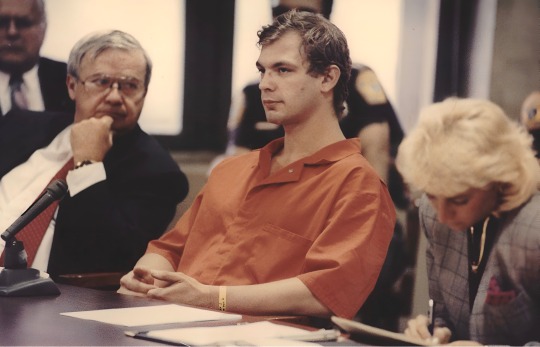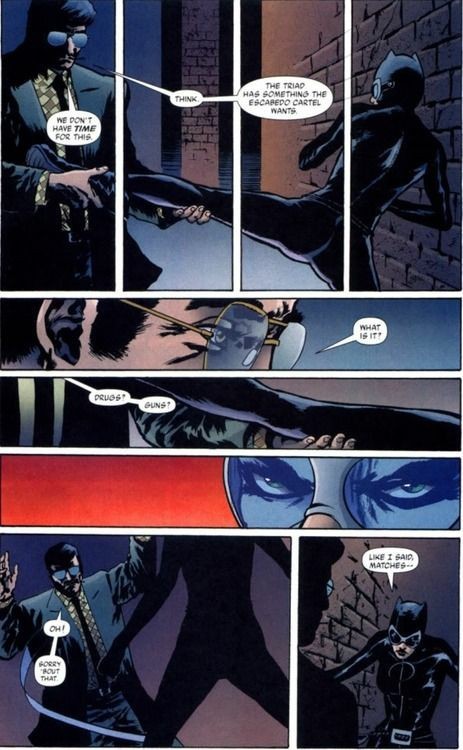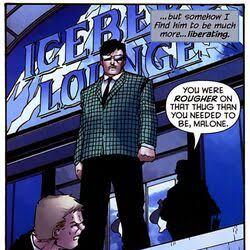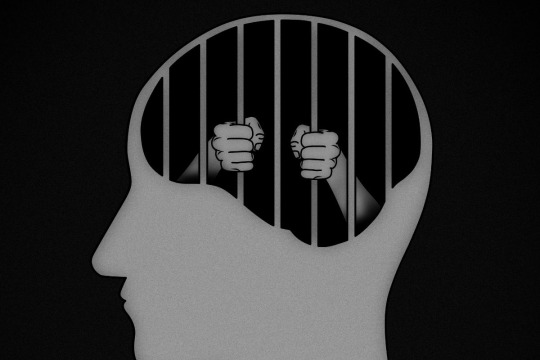#criminal psychology
Text










Literally future me
#psychology#psychmajor#clinical psychology#forensic psychologist#psychologist#criminal psychology#psychology major#study motivation#studyinspo#futuredoctor
194 notes
·
View notes
Text
Best character surnamed: Xing
Come and vote for the best characters with the same surname!*
What does best mean? It's up to you! Whether you love them, are intrigued by their characters, love to hate them, or they're your '2 second blorbos whose personality you made up wholesale', these are all reasons for you to vote for your favs!
*note, the surnames are not exactly the same in all the cases, as often there will be a different character. I am, however, grouping them all together otherwise things got more complicated.
Propaganda is very welcome! If I’ve forgotten anyone, let me know in the notes.
This is part of a larger series of ‘best character with X surname’ polls’. The overview with ongoing polls, winners, and future polls can be found here
*Black Lotus Flower Transmigrates into a Dog Blood Novel’s Male Supporting Role
#poll#legend of shen li#high energy QR code#criminal psychology#bloody romance#Black Lotus Flower Transmigrates into a Dog Blood Novel’s Male Supporting Role
23 notes
·
View notes
Text
True crime has literally ruined people's ability to empathize, sympathize with and humanize mentally ill people.
Because of true crime, people see all mentally ill people as potentially dangerous criminals and that's a really bad, shitty thing actually.
I don't know who needs to hear this but there's no such thing as "psychopaths" or "psychopathy", it's something criminal psychologists made up to put mentally ill people in jail. There is no diagnosable disorder as "psychopathy". YOU NEED TO HEAR THIS. And before anyone tries to refute this, those with ASPD and those with psychosis are not "psychopaths". Psychopathy is made up by cops to put people in jail.
I'll go even further, if you assume people with personality disorders or other stigmatized disorders as dangerous or abusive, you're a bad person. Narcissistic abuse isn't a thing, it's called emotional abuse. I'm saying this as someone who's parent who DOESN'T have NPD, but the way they abused us is identical to the way "narc abuse" happens. "Narc abuse" is a made up term to scapegoat a group of mentally ill people. You should understand that is bad.
I have DID, and I cannot tell you enough that there's no such thing as an "evil alter". All people with DID have trauma and those "evil alter"s are literally traumatized parts who struggle to cope with it. They feel threatened by everyone and therefore sabotage or harm to keep us protected. It may not be healthy, but you are lucky to not have gone through that. Don't demonize people with DID, you have no idea what you're talking about.
Those who have delusions and hallucinations are literally more likely to be gaslit and abused than they are to act "dangerously". I'm sorry, have you met people who are scared act dangerously before? No shit. You would act that way too if you were plagued with horrible illusions that you had to face everyday. Step into their shoes, understand what they go through, it's not your room to judge. Even if they weren't scared, even if they could cope with them better, at least they were given room to cope. All you do is shame people for existing.
And as for other personality disorders, they're just normal people living lives where they have to deal with debilitating mental illness. The least you can do is be more compassionate for their situation and understand that they're human too.
True crime and the craze around criminal psychology has literally deteriorated people's capacity to be kind towards disabled and mentally ill people. If you can't look at a person with a personality disorder or another stigmatized disorder without disgust and shame, then you need to overcome internalized ableism. Everyone is capable of bad things, mentally ill or not.
You need to stop pathologizing criminal behavior. (not every bad person you see is mentally ill/disabled).
#babey posts#true crime#criminal psychology#criminal psychology is bad actually#ableism#copaganda#important#please reblog but don't clown
249 notes
·
View notes
Text
it’s so embarrassing having true crime as your special interest,i feel like i’m the least normal person on the planet
45 notes
·
View notes
Text





The Case of Jeffrey Dahmer:
Sexual Serial Homicide from a Neuropsychiatric Developmental Perspective
J. Arturo Silva, M.D
Michelle M. Ferrari, M.D
Gregory B. Leong, M.D
)c(
"Sexual serial homicidal behavior has received considerable attention during the last three decades. Substantial progress has been made in the development of methods aimed at identifying and apprehending individuals who exhibit these behaviors. In spite of these advances, the origins of sexual serial killing behavior remain for the most part unknown. In this article we propose a biopsychosocial psychiatric model for un- derstanding the origins of sexual serial homicidal behavior from both neuropsychiatric and developmental perspectives, using the case of convicted serial killer Jeffrey Dahmer as the focal point. We propose that his homicidal behavior was intrinsically associated with autistic spectrum psy- chopathology, specifically Asperger’s disorder. The relationship of Asperger’s disorder to other psychopathology and to his homicidal behavior is explored. We discuss potential implications of the proposed model for the future study of the causes of sexual serial homicidal criminal."


#true crime#serial killers#crime after crime#criminal investigations#killer queen#jeff dahmer#jeffery dahmer#aspergers#psychology#criminal psychology#dahmer trial#gay true crime#Arturo silva#thesis#forensics#mental health#Jeffrey Dahmer
50 notes
·
View notes
Text
crime and punishment by dostoevsky; a playlist
#dark acamedia#light academia#chaotic academia#chaotic academic aesthetic#criminal psychology#crime and punishment#fyodor dostoevsky#fyodor dostoyevsky bsd#dostoyevski#dostoevksy#raskolnikov#russian literature#dark academism#dark acadamia aesthetic#dark academia#psychology#Spotify
32 notes
·
View notes
Text
You know something that pisses me off? Drake Bell was "cancelled" or whatever for being inappropriate with teenage girls and embarrassingly immature. Now everyone's like "wow it turns out there are reasons he is the way he is" and suddenly you all feel bad for him like wow you don't fucking say. People have no space in their minds for critical thinking or nuance and it's infuriatingly lazy and unproductive, even counterproductive.
To quote @sapphling (RIP to that fucking blog gee I wonder what happened there:)
it's just absurd how many "you have to think CRITICALLY about kink" addicted-to-talking-about-reading-comprehension types on here have fully and uncritically bought the standard societal narrative that sexual violence is something that happens because some people are Born Perverts and that those Perverts wake up every day saying "I love sexual violence. Sexual violence is my kink. Today I am going to do sexual violence." it's a very safe and very satisfying lie to swallow which lets you absolve the systems of power which produce sexual violence, as well as any complicity you could potentially hold by propping them up; and it goes further to absolve the self of any potential individual responsibility, because of Course you're not capable of reproducing sexual violence or violating another person's consent -- because that's what Perverts do, and you're not a Pervert, and maybe the Pervert even absolves you of a little bit of that unspeakable unmentionable bigotry in the back of your mind (think about how many marginalized people's "callouts" are met with an "I always knew something was wrong, she always made me uncomfortable to look at, I always thought they were probably a creep," justified ex post facto by the presence of Perversion). it's the same thing that dyed-in-the-wool conservatives do with Kill All Pedophiles, it's been the same since the early 20th century conceptualization of The Pervert to explain why communism and discontent were gaining a foothold, it's one of the most politically unifying impulses of normative society: justify the status quo, explain violence as an outlier, attribute the outlier to a monster, redirect anger and remorse and action towards the monster. the reason why new conceptualizations of Perversion feel right to you may be less due to an inherent political brilliance which your perfect soul can see in them -- and in fact it might do you well to consider if these conceptualizations follow through to fact, if they protect the vulnerable, if they offer keen insight which would disrupt an order which presently produces an overwhelming amount of violence; or if they simply feel right because their adoption is politically, rhetorically, psychologically, and physically very, very easy
7 notes
·
View notes
Note
okay, first: your long-form posts are brilliant and they wonderfully delve into the psychology and social dynamics of the boys. second: i know you've mentioned dylan potentially being autistic in passing, but do you think eric might've exhibited traits of asd as well? for example, his fascination with doom reads as a special interest to me.
oh thank you so much!! that means a lot to me, i really do try and just enjoy having somewhere to dump my endless stream of thoughts. thank you for reading :-)
i actually recently changed my mind about the autistic thing with dylan, but that's a whole different story! i've linked it in case you, or anyon else, is interested in checking that out.
for eric, i wouldn't say he really exhibited asd traits. i think eric's fascination with doom was escapism since he was socially struggling in the real world. i broke it down more here. i would argue that most of eric's fixations were symbolic for him or forms of escapism to help him cope with where he felt he was falling short in the real world.
however, to break it down: "This was also a world in which Eric could control – he could smite down the monsters in his path and he knew what lay around every corner. This may be considered a form of escapism, which is not necessarily new behavior in teenagers...
...It is especially difficult for those going through a psychological hardship to not stimulate their minds. Rather, it can be easier to avoid and escape the difficult and, often, intrusive thoughts. Psychological distress and a method to avoid dealing with such troubles creates the perfect storm within an emotionally unintelligent and unequipped teenage boy...
To Eric, Doom symbolized something he was not: powerful, strong, and capable. In the basement tapes, Eric and Dylan explain their murderous motivations. Eric references his favorite game: “It’s gonna be like fucking Doom man; after the bombs explode.”
mental health diagnoses are very hard. a lot of conditions can mimic one another, like ADHD being incorrectly diagnosed as bipolar disorder. so who's to say, really? however, eric demonstrated stronger social capacity than i would say is typical of asd. here is also my disclaimer regarding this: when i did my bachelor's and master's, my studies did not focus on asd. i am not an asd specialist and i do not do asd-specific work. i intervene and divert first-time offenders.
thank you for your question and for reading! i hope to hear from you soon and i hope my answer satisfies some of your curiosity. i do wish somedays, after meeting the offenders i've met, and the stories i've heard, that i could time travel and sit them in a room and just...talk to them. study them. figure them out. the real people, not the objective information we see in the 11k. it's a disservice to psychology that we can't time travel lol
9 notes
·
View notes
Text
I'm hyperfixeted on criminal psychology rn .
Which means that I looked into studying the subject in university I would need to study psychology first which I've been interested in for a long time.
I know that nothing will probably come of it I don't even think that I would be accepted (my grades probably won't be good enough) but at least it good to have a goal to hold onto for some time.
#criminal psychology#school#late night thoughts#late night rambles#university#I for some reason really want to go to university
6 notes
·
View notes
Text
I'm starting to get into criminal psychology. Seems like a perfect career for me! I love studying how the mind works and getting to the nitty gritty of our entire perception of the world around us. It's a dangerous job but I want to help people and prevent tragedies from occurring again through finding reasons for people's actions. Counterterrorism seems to be the specific kind of thing I want to get into.
7 notes
·
View notes
Text
I'm really fascinated by the way people interact with authority figures. And vice-versa. I can't really put it to words, which makes it a perfect thing to post about on tumblr dot com the wordless web site.
There's something almost hypnotic about watching a passion killer come to terms with their future in the interrogation room, or watching a first amendment auditor talk to a cop the way that cops talk to civilians.
Sometimes, it's not hypnotic. Sometimes it reminds you that there are very evil monsters amo-- nearby. And some very sad, sick individuals who mask extremely well until they don't.
But then I just play Satisfactory and watch House and the bad people don't exist anymore.
#god im so bored#i miss jcs#did he start a new channel#youtube#criminal psychology#jcs#jimcantswim#ewu#explore with us#i dont usually tag this much but i actually want relevantish people to see this#satisfactory
7 notes
·
View notes
Text
Edexcel Psychology A Level
Tips for Exams
The practical investigation and research methods of each section are not included, however if you have any questions regarding either of these please feel free to leave a message or comment. Good luck with your studies
Social
Content
Agency Theory
Social Impact Theory
Milgram's Study
Variations of Milgram
Factors Affecting Obedience
Social Identity Theory
Realistic Conflict Theory
Factors Affecting Prejudice
Studies
Classic - Sherif
Contemporary - Burger
Key Question
Cognitive
Content
Multi-Store Memory Model
Working Memory Model
Tulving's Long Term Memory
Reconstructive Memory
Individual Differences
Developmental Psychology
Studies
Classic - Baddeley
Contemporary - Sebastian and Hernandez-Gil
Key Question
Biological
Content
Neurotransmitters
Effect of Recreational Drugs
Structure of Brain
Role of Evolution
Freud's Psychodynamic Theory
Role of Hormones
Studies
Classic - Raine
Contemporary - Brendgen
Key Question
Learning Theories
Content
Classical Conditioning
Operant Conditioning
Social Learning Theory
Bobo Doll Experiment 1961/63
Bobo Doll Experiment 1965
Phobias and Treatments
Studies
Classic - Watson and Rayner
Contemporary - Becker
Key Question
Clinical
Content
Diagnosis of Mental Disorders
Classification Systems:
International Classification of Diseases
Diagnostic and Statistical Manual of Mental Disorders
Reliability and Validity
Schizophrenia
Obsessive Compulsive Disorder
Treatments
Studies
Rosenhan's Sane in Insane Places
Carlsson's Schizophrenia
Masellis' OCD
Key Question
Criminal
Content
Brain Injuries
Amygdala
XYY Syndrome
Sham Rage
Personality Disorders
Eysenck's Personality Theory
Hormones
Neurotransmitters
Labelling and Self-Fulfilling Prophecy
Social Learning Theory
Cognitive Interview
Psychological Formulations
Cognitive Behavioural Treatment
Hormone Treatment
Eye-Witness Testimony
Jury Decision Making
Studies
Loftus and Palmer 's Leading Questions
Bradbury and Williams' Race and JDM
Key Question
#edexcel#a level psychology#psychology#social psychology#cognitive psychology#biological psychology#learning theories#clinical psychology#criminal psychology#issues and debates#a levels#revision
71 notes
·
View notes
Note
Are you in “love” with Dahmer or are you a genuine account who just looks into the psychology of a killer?
no, i'm not in "love" with dahmer.
i find his case extremely fascinating. i am intrigued on how his brain worked and the sociobiological aspects that led to the horrific things that happened surrounding the case. if we educate ourselves on why the horrific things actually happened, and acknowledge that the guy was a very unwell human rather than blaming an almighty evil power for the heinous crimes committed, i feel we can learn a lot and stop situations like that reoccurring. we need to stop putting these kinds of people on such infamous, twisted pedestals and see them as they really are, which are fucked up human beings who are the result of their biology and environments in which they're surrounded.
#tcc#true crime#true crime community#tcrc#jeffrey dahmer#milwaukee cannibal#criminal psychology#dahmer
50 notes
·
View notes
Text
Crimes of Impulse - Murders of Jealousy and Rage
Impulse crimes are commonly referred to as ‘crimes of passion’ or acts carried out in the ‘heat of the moment’. Often the ‘passion’ concerns a romantic or sexual relationship, or may simply mean no more than any strong emotion one is experiencing such as rage or anger.
Broadly speaking, crimes can often be broken up into two defined categories: expressive and instrumental. Expressive crimes, or our crimes of impulse, are contrasted by instrumental crimes; those preceded by planning, and carried out with malice aforethought. Certain motives behind crimes are judged as more understandable and forgivable; others as vile or inhuman.
When things go wrong in the sphere of love, we may find jealousy - and where we find jealousy, to an extreme enough degree, serious crimes including murder can occur, many as acts of spontaneity and in the heat of ‘passion’. Jealousy can be understood as an extreme emotional state, hardwired in our brains over centuries of evolution, to safeguard what we consider to be most precious to us. Our susceptibility to jealousy is shared by near all of us, and is why we so often find it in the works of art and literature - from Shakespeare’s Othello to Euripides‘ Medea. Of course, not all spontaneous violence and murder relates to jealousy - violence during brawls or in the course of an argument are often spurred by feelings of intense anger and rage.
Jealousy Murders
George Skiadopoulos
In 1999, George Skiadopoulos was convicted of the murder of 31-year old Julie Scully. A former model, Julie met George, a Greek sailor, while on a cruise in the Caribbean. Bored in her marriage to her current husband, Julie and George began an affair, following which Julie divorced her husband and began to live with George. An intensely jealous man, George often spied on Julie’s private phone calls and became increasingly argumentative, in one instance going so far as to choke Julie’s mother. After charges forced him to return to Greece, Julie, who had returned with him and grown weary of both George and her new life, insisted on returning to the United States. George lured Julie to a remote spot and strangled her, before proceeding to dismember the body and dispose of it in the Aegean Sea.
Clara Harris
Clara Suarez Harris, the only child of an affluent family, lived an upscale and flourished life in Houston, Texas with her husband, David Harris, both of whom shared in the profession of dentistry. Busy with both motherhood and a successful practice, David felt sidelined by Clara, and soon began an affair with his receptionist, Gail Bridges. However, the affair soon become known to Clara, who, after hiring a private investigator, traveled to the hotel David and Gail were staying in. Upon them emerging from the lobby, Clara proceeded to mow down her husband with her car, driving over him a further two times in order to kill him.
Jeremy Akers
Born to a working-class family in Mississippi, Jeremy Akers was the typical all-American overachiever - a straight-A student, bodybuilder and highly competitive individual; graduating law school before serving in Vietnam. Upon his return, Jeremy married Nancy Richards, to whom he was brash, domineering, jealous and possessive. The marriage soon began to deteriorate. Depressed after the birth of her third child and feeling unappreciated by her husband, Nancy struck up an acquaintance with truck driver, Jim Lemke. The pair shared an appreciation of writing and soon became lovers. Having already suspected the two’s infidelity, Jeremy’s feelings only escalated upon Nancy suing for divorce. Using the pretext of discussing divorce details, Jeremy lured Nancy back to their house, where he shot her to death with a .38 before turning the gun on himself.
Impulse Murders: Emphasis on Rage
Robert Rowe
Robert was born one of two brothers raised in a Protestant family. Married to a Catholic woman (despite the protests of his mother) to whom he had two sons with: Bobby and Chris, who was born blind and deaf due to his wife’s early contraction of rubella during pregnancy. Robert was described as unusually stoic in the face of his son’s condition, forming a support group for other couples in similar situations. When he was forty, he and his wife adopted a young girl. Three years later, Robert’s mother passed away, but not before humiliating him by admitting she wished she had aborted him before he was born, as she had with her first two pregnancies. She considered Robert as nothing more than a lowly bureaucrat and a fake, and disinherited him in a final act of spite. Robert soon became seriously depressed, suffering recurrent dreams in which his mother urged him to kill his family. Receiving psychiatric treatment for his depression, Robert was unable to continue work as an attorney and took up a job as a New York cab driver. However, not long after, his cab was stolen and Robert was unwillingly reduced to a house husband while Mary worked. Upon discovering his other child, Bobby, had developed a congenital hip disease that may render him wheelchair bound, Robert ceased taking his medication and slipped further into depression. The suggestion to place Chris in the care of an institution was raised by Robert, but ultimately dismissed by his wife, further deteriorating the situation. The culmination of these events came about in 1978, wherein Robert took a baseball bat to his three children, bludgeoning them to death. Upon her return home, Robert instructed his wife to put on a blindfold as he had a ‘surprise’ for her - the surprise being him proceeding to bludgeon her to death with the bat as well. Robert then attempted suicide by way of the gas from his oven, but was rescued by a neighbor.
Susan Wright
Susan Wyche worked as a go-go dancer at the local discotheque, where she met her soon-to-be husband, Jeff Wright. An affair soon ensued, the result of which was Susan falling pregnant to Jeff, who, to Susan’s irritation, delayed in marrying her until she was eight months along in her pregnancy. While Jeff’s job as a fairly successful salesman afforded them the ability to live in relative comfort, he was addicted to both cocaine and other women - avocations ruinous to both their finances and their marriage. In 2003, Susan’s anger having reached a tipping point, she enticed Jeff into their bedroom under the pretext of engaging in bondage activities, allowing himself to be restrained to the four corner-posts of their bed. In a burst of rage, Susan mutilated his genitals and stabbed Jeff near two hundred times. Panicked, Susan dragged the body to their yard before disposing of it in a pit, dug earlier by Jeff for an unknown reason. Susan had planned to tell people Jeff had simply ‘disappeared’, however this would prove to be in vain, as their dog dug up the body only a few days later.
Dr. Bruce Rowan
Idaho-born to a large family, of which he was the youngest, Bruce Rowan was depressed for most of his life, grappling with feelings of unworthiness and suicidal idealisation. During the course of his academic studies as a medical student, Bruce continued to suffer from suicidal thoughts, for which he was temporarily hospitalised. Debbie, Bruce’s girlfriend, stood by him during this time, partly due to her love for him, partly out of the fearful belief that were she to leave, he would attempt to kill himself. The pair married and spent considerable time traveling the world and doing charitable work in various countries before returning to the United States to settle down. Bruce was still determined to travel, to provide aid to the needy, in hopes this would alleviate his continual feelings of unworthiness. Following their adoption of a young girl, Debbie was often preoccupied with caring for their baby, and Bruce, saddled with chores and finding himself with less quality time with Debbie, began to grow resentful. In 1998, Bruce’s resentment turned to rage, and he murdered Debbie using an axe. Bruce then placed the body in their car before pushing it down a hill in an attempt to convey the appearance of an unfortunate accident. At trial, Bruce was ultimately found not guilty by way of mental illness.
(source)
#true crime#tc#psychology#criminal psychology#crime#criminology#study#i've been pretty inactive on this blog over the last 2 years as you can imagine life has been tumultuous#and then i'm back with one long post out of nowhere#but anatomy of evil remains unfinished on my shelf and this is my way of trying to make it to the end#this one was a doozy to read and type up#tw murder#tw suicide
31 notes
·
View notes
Text
Going through Movemeber I was reminded of one of Batman's Alias "Matches Malone" it's a criminal identity he took to infiltrate the criminal underworld, kinda fun hehehe.








#project batman#batman#bruce wayne#martial arts#training#exercise#fitness#work out#kung fu#matches malone#fake id#crime fighting#batman alias#criminal arsenist#criminal psychology#movember#mustache bruce wayne#mustache#undercover#batman trivia#superhero fitblr#superhero fitness#me
16 notes
·
View notes
Text
What Is Criminal Psychology?

Crimes have been a part of society since the beginning of humankind. Similar to the two sides of a coin, there exist good deeds and bad ones in this world simultaneously.
People have made rigorous attempts to understand human behavior.
Why do criminals do what they do?
Why.
This is a question that leads me and you to the vast branches of psychology that have been developed over the years. Criminal Psychology is a part of this.

Criminal Psychology
Crimes are closely interrelated with human behavior and thought processes. It is a branch of psychology that deals with the crime scenes, suspects and criminals.
This branch of psychology studies the behavior of the criminal or suspects and the circumstances which caused the crime to take place.
Would you want to be a criminal psychologist?

Work of a Criminal Psychologist
If you were to pursue criminal psychology, your primary task would be to create a psychological profile of the criminal –a process known as offender profiling or criminal profiling. This is done by interrogating the suspect or criminal.
Criminal psychologists also examine individual criminal behavior and diagnose the criminal, looking for any plausible psychological problems the criminal might be suffering from.
They interact with the criminal and ask them a wide range of questions. The information attained by the psychologist through introspective and observational reports of the criminal is then evaluated, conclusions are drawn and these details are submitted to officials for further investigation.
Criminal psychologists work in close contact with the police and investigation officers, updating them about any news that might be useful in evaluating the crime and the criminal.
They also learn the behavioral patterns of the criminal before, during, and after committing the crime.

Other Responsibilities of a Criminal Psychologist
Let me tell you that while the work of a criminal psychologist, in reality, might not be as exciting and adrenaline-pumping to you as depicted on TV shows, it is far from being a boring branch to pursue.
Some criminal psychologists might step out of the boundaries of evaluation and begin counseling the criminals.
This involves helping the criminal eliminate the faulty behavior patterns and thought processes and replacing them with appropriate alternatives.
The psychologist also monitors the chances of the occurrence of recidivism, i.e., evaluating the risk of such people reverting to crime.
Criminal psychologists also provide expert testimony in the courtroom, assisting the court in carrying out the proceeding of the case in a rational and verifiable manner.

Criminal Psychologists are not Forensic Psychologists
It can be difficult to provide a clear distinction between the work of a criminal psychologist and a forensic psychologist. But you must remember that they are two separate branches that are interrelated with one another.
Unlike forensic psychologists who are more involved in the court proceedings and the passing of judgments and laws, criminal psychologists are more focused on the criminal and all the factors revolving around them.
Criminal psychologists study everything about the criminal.
This involves studying the following aspects of the criminal:
thought processes
intentions
motivations
reactions
It all comes down to one question: Why do criminals do what they do?

39 notes
·
View notes